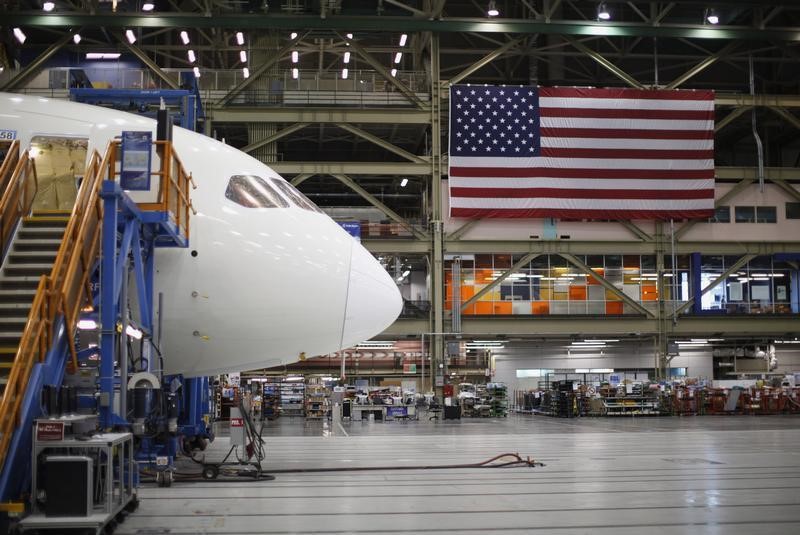Investing
Boeing to supply E-7 in first major win since plea deal By Reuters

RAF FAIRFORD, England (Reuters) -The United States Air Force said it had reached a deal with Boeing (NYSE:) for the supply of E-7 Wedgetail airborne warning and control aircraft and downplayed concerns that the company’s internal crisis would harm its ability to supply the Pentagon.
The provisional deal covers the rapid production of prototypes as the Air Force phases out E-3 Sentry or AWACS airborne warning and control aircraft, and follows reports of disagreements over the price for the 737-based Wedgetail planes.
“We have reached agreement with (Boeing)… We have got a reasonable price point that we can afford,” Secretary of the Air Force Frank Kendall told reporters at the Royal International Air Tattoo military air show in western England.
A formal contract will be finalised in August, he added.
It is the first major contract announcement since Boeing agreed earlier this month to plead guilty to a criminal fraud conspiracy charge to resolve a U.S. Justice Department investigation into 737 MAX fatal crashes over five years ago.
Experts have said the guilty plea, which is opposed by the crash victims’ families, potentially threatens the company’s ability to secure contracts from agencies such as the Defense Department and NASA, although it could seek waivers.
Asked how the plea deal had affected the Pentagon’s ability to negotiate with Boeing, Kendall said, “The short answer is it has not; we are continuing to do business with Boeing”.
Under U.S. rules, the Pentagon has to assess whether any supplier it does business with is a responsible company.
“We will be working in a coordinated fashion … to understand what implications there might be from the plea deal, but I don’t anticipate at this point that it is going to … lead to significant disruption of our contracting,” Andrew Hunter, assistant Air Force secretary for acquisition, technology and logistics, told reporters.
Boeing is the Pentagon’s second-largest contractor and is widely said to be competing with Lockheed Martin (NYSE:) in a strategically important contest to replace the F-22 fighter.
The latest agreement stems from efforts by the Air Force to replace Cold War-era E-3s, whose distinctive rotating radar dome allows crew to track targets and direct aircraft in a battle.
The transition between the two planes has been delayed amid negotiations over price, raising some concerns in Congress about gaps in capability.
“We are very glad to have an affordable basis for the rapid prototyping program, which is the basis for the production programme going forward,” Hunter said.
Boeing welcomed the agreement, which provides a boost to its defence business following a series of cost overruns and delays.
“We are focused on executing well and meeting the needs of our customer,” a spokesperson said.
Read the full article here

-

 Side Hustles7 days ago
Side Hustles7 days agoWhy the Best CEOs Think Like Anthropologists
-

 Side Hustles5 days ago
Side Hustles5 days agoThis User-Friendly H&R Block Software Package is Only $40, While Supplies Last
-

 Investing5 days ago
Investing5 days agoTikTok faces US ban deadline as users brace for fallout By Reuters
-

 Passive Income4 days ago
Passive Income4 days agoTrain for a New Tech Career in 2025 With This $25 Course Bundle
-

 Personal Finance6 days ago
Personal Finance6 days agoDecember inflation clouds Fed's outlook on interest rate cuts
-

 Side Hustles6 days ago
Side Hustles6 days agoSupreme Court TikTok Ban: What to Know, January 19 Deadline
-

 Personal Finance7 days ago
Personal Finance7 days agoCalifornia's homeowners insurance industry faces rough road ahead as wildfires continue
-

 Passive Income6 days ago
Passive Income6 days agoUse These ChatGPT Prompts to Boost Your Amazon Sales


















